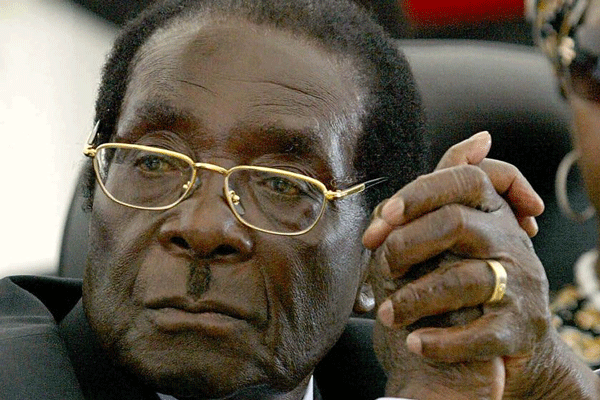
WAR veterans have accused President Robert Mugabe of using a faction in Zanu PF to remove one of his deputies from office using the same tactics he employed against former vice-president Joice Mujuru.
BY BLESSED MHLANGA
Zimbabwe National Liberation War Veterans’ Association secretary-general Victor Matemadanda said Mugabe was behind the G40 faction that is pushing for Vice-President Emmerson Mnangagwa’s outster.
“We know when we were fired from the party that it was not us who were targeted,” Matemadanda alleged.
“They wanted Mnangagwa to speak in our defence so they could find an excuse to expel him. It’s a good thing that he did not defend us.”
The former Zanu PF central committee member said revelations by former Mashonaland Central youth chairman Godfrey Tsenengamu, that Mugabe had invited them to State House to rehearse attacks on Mujuru, showed that it would not be far-fetched to speculate that the 92-year-old leader was now after Mnangagwa.
Matemadanda said the resolution by the Dickson Mafios-led Mashonaland Central province, calling for Zanu PF vice-presidents to be elected, could have come from Mugabe himself.
“Mafios could have been called to rehearse an attack on Mnangagwa in the same manner the youth were trained. How do you explain the silence in the party on someone who has openly attacked the president?” he said.
- Chamisa under fire over US$120K donation
- Mavhunga puts DeMbare into Chibuku quarterfinals
- Pension funds bet on Cabora Bassa oilfields
- Councils defy govt fire tender directive
Keep Reading
“We were arrested and dragged to court for a far lesser crime. We did not even challenge the president, but Mafios has politely told the president that they don’t trust him to holding the powers to appoint his deputies and there is a surprising silence from Mandi Chimene and no arrests; this shows you it was planned.”
A state media columnist Nathaniel Manheru, who is believed to be Mugabe’s spokesperson George Charamba, weighed in, attacking Mafios and Higher Education minister Jonathan Moyo, saying they were misguided and divisive.
“The Zimdef scandal and the Mafios resolution have, in addition to the usual divisive factional politics, hinted at the resurgence of tribal and regional politics harkening to and retracing the fault lines of early independence,” Manheru wrote yesterday.
Manheru, like Matemadanda, accused Moyo of trying to use the tribal and factionalism ticket to hide from alleged criminal offences instead of facing the music.
“Jonathan Moyo after stealing from Zimdef is now hiding behind tribalism. Do we have a tribe that is above the law in this country? He talks about factions, it is him who helped create Lacoste and G40, but now says he is a victim of his own creation, that cannot be,” Matemadanda said.
Manheru in a subtle statement accused Moyo of being a loud-mouth who, apart from pushing succession politics, was now becoming “secessionist”.
“Big mouths inside Zanu PF are borrowing arguments from Mthwakazi, lisping the divisive vocabulary that reopens old wounds, that inflames passions of secession. Apart from succession, the tone of factionalism is assuming undertones of secession,” he claimed.
Matemadanda said Zimbabweans should be ready for surprises after this week’s Zanu PF conference in Masvingo because it was clear that the “old tired Mugabe was now out of his depth”.
“He is tired and old and when someone challenges the centre and it can’t make a decision, it either can’t hold anymore and needs a rest or it’s behind the confusion, so expect surprises and more confusion.”
Mugabe early this year accused war veterans of insulting his wife before he fired their leader Christopher Mutsvangwa from his government.
The war veterans had attempted to march against Grace and G40 as the infighting over Mugabe’s succession escalated.











